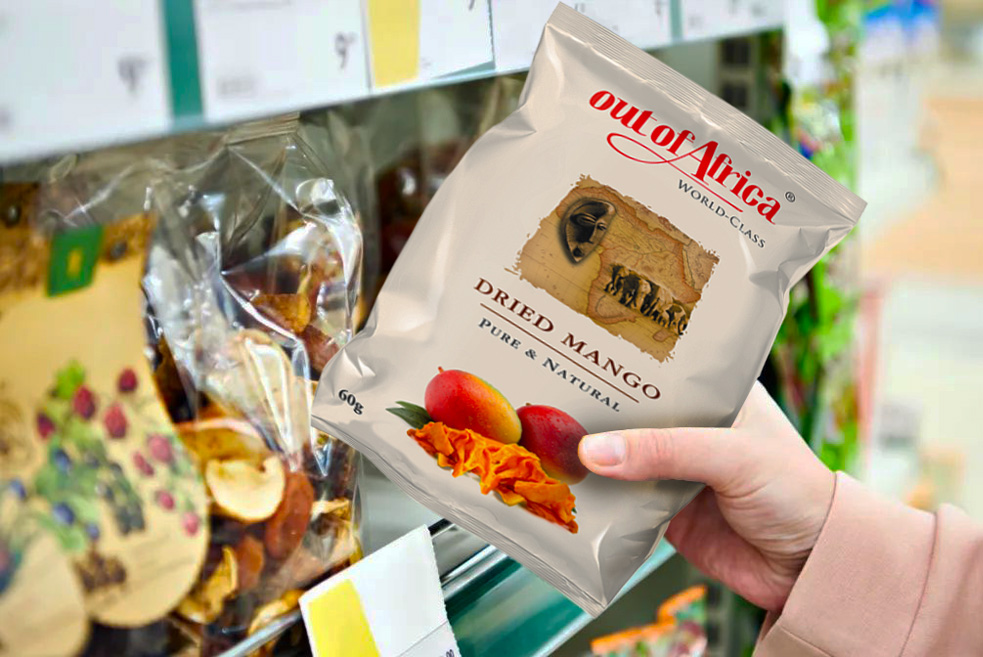Unlocking the Profit Potential of Kenyan Dried Mango
As UK consumers shift towards healthier, natural snacks, dried mango has become one of the fastest-growing categories in the dried fruit market. Retailers, wholesalers, and food manufacturers looking to expand their product offerings should consider sourcing dried mango from Kenya, where the best quality mangoes are produced using sustainable, ethical farming practices.
Kenya is emerging as a global leader in premium dried fruit production, offering:
- Higher quality dried mango with a naturally sweet, tangy taste.
- Sustainable, small-scale farming that meets fair trade standards.
- Lower environmental impact compared to large-scale industrial farming in other countries.
- A reliable, growing supply chain that ensures consistent stock availability.
With UK dried fruit sales increasing by 11% (Statista UK, 2024) and consumers demanding ethically sourced, high-quality snacks, Kenyan dried mango presents a high-margin, low-risk investment for retailers and wholesalers.
Why Kenyan Dried Mango is Superior to Other Origins
1. Naturally Sweeter, Higher Quality Mangoes
Kenya is home to some of the world’s best mango varieties, including the Apple, Kent, and Ngowe mangoes, known for their:
- High natural sugar content, giving dried mango a rich, indulgent sweetness.
- Vibrant colour and firm texture, making them ideal for snacking and food manufacturing.
- Minimal processing, with no need for added sugars or artificial preservatives.
2. Sustainable and Ethical Farming Practices
Unlike mass-produced mangoes from South America or Asia, Kenyan dried mango is sourced from smallholder farmers who use traditional, sustainable farming methods.
- Naturally ripened fruit with minimal intervention.
- Zero-waste farming – mango peels and seeds are repurposed for animal feed and fertiliser.
- Fair Trade partnerships, ensuring farmers receive fair wages and better working conditions.
3. Lower Carbon Footprint and Environmental Impact
Kenya’s tropical climate and natural rainfall mean that mangoes are grown without excessive irrigation.
- Kenyan mango trees require 75% less water than mango farms in other parts of the world.
- Lower pesticide use compared to large-scale industrial farming operations.
- Reduced CO₂ emissions, as Kenya’s drying facilities use solar-powered dehydration instead of fossil-fuel-powered drying.
By choosing Kenyan dried mango, retailers and wholesalers can offer a premium, sustainable product that aligns with modern consumer values.
The Profitability of Kenyan Dried Mango for UK Retailers
1. Higher Price Points & Stronger Margins
Kenyan dried mango is positioned as a premium snack, allowing for higher retail prices and better profit margins.
| Product | Wholesale Cost (per 100g) | Retail Price (per 100g) | Profit Margin | Shelf Life |
| Kenyan Dried Mango | £0.80 – £1.30 | £2.50 – £3.80 | 30-50% | 12 months |
| Chocolate Bars | £0.50 – £0.80 | £1.20 – £1.50 | 15-25% | 6 months |
| Crisps | £0.40 – £0.70 | £1.00 – £1.30 | 10-20% | 3-6 months |
2. Longer Shelf Life = Lower Waste & Inventory Costs
Kenyan dried mango has a 12-month shelf life, ensuring:
- Minimal stock loss, unlike fresh fruit or perishable snacks.
- Bulk buying opportunities for retailers and wholesalers.
- Reduced need for frequent stock turnover, cutting logistics costs.
3. Aligning with Consumer Demand for Ethical Sourcing
With 67% of UK shoppers prioritising sustainable, fair trade products (Statista UK, 2024), retailers that stock ethically sourced Kenyan dried mango will attract:
- Health-conscious shoppers looking for natural, sugar-free snacks.
- Eco-conscious consumers choosing sustainable farming practices.
- Premium buyers are willing to pay more for superior quality products.
Retailers investing in Kenyan dried mango now will establish themselves as leaders in the growing premium snack market.

